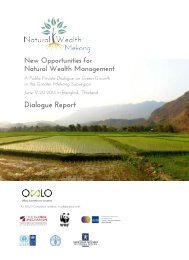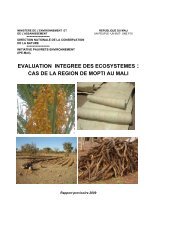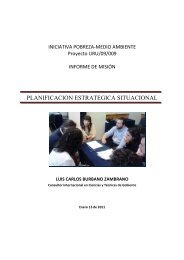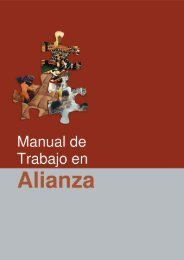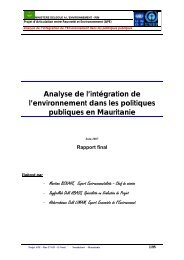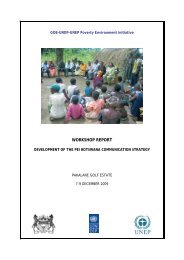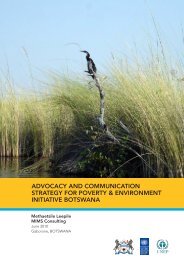Meru South District - UNDP-UNEP Poverty-Environment Initiative
Meru South District - UNDP-UNEP Poverty-Environment Initiative
Meru South District - UNDP-UNEP Poverty-Environment Initiative
You also want an ePaper? Increase the reach of your titles
YUMPU automatically turns print PDFs into web optimized ePapers that Google loves.
6.1.7 Impacts of Water Use & Demand on the <strong>Environment</strong> and<br />
Natural Resources<br />
i. Siltation: Due to agricultural activities along the river banks, earth dams and<br />
water pans and within the catchment areas there is massive soil erosion<br />
causing siltation on the sources.<br />
ii. Depletion: This is caused by the felling of trees either in forests (timber<br />
purposes) or within catchment areas. This reduces the water retention power.<br />
Illegal water abstractions also lead to over utilization of water in rivers on the<br />
upper zones.<br />
iii. Pollution: the main causes of pollution are poor domestic waste disposal,<br />
industrial wastes e.g. from tea and coffee factories and also from slaughter<br />
houses and slabs. Poor management of liquid wastes within towns is a major<br />
cause of pollution. Agricultural activities lead to soil erosion hence polluting<br />
the water resources through agrochemicals and herbicides used in farming.<br />
6.1.8 Key <strong>Environment</strong>al Issues in Management of Water Resources.<br />
Conflicts:<br />
Water shortages lead to disagreements between water consumers or farmers who<br />
irrigate their land. Illegal abstractions upstream may cause conflict from the<br />
people downstream during the low discharge periods.<br />
Water Pricing:<br />
The government has come up with a generally affordable tarrifs (water rates) to<br />
all consumers, though there are cases where project members feel they have to<br />
agree on their own rates of payments.<br />
Apportionment:<br />
Before any project undertakes any construction works the ministry has to be<br />
satisfied that the discharge from the river /source is adequate and that all the rules<br />
and regulations are adhered to.<br />
Interventions<br />
In 2002 the ministry of water and irrigation introduced water act 2002 which<br />
controls and authorizes water use to ensure sustainable use of water resources.<br />
The act also allows formation of water services Regulatory Boards to run water<br />
supply and sewerage services together with the Water Resource Management<br />
Authority that is charged with task of sustainable management of water resources.<br />
51



